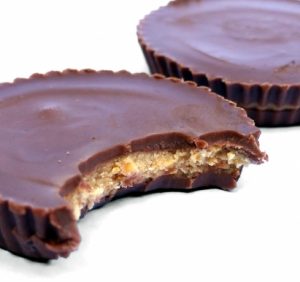Stressed? Cravings Increase, But Good Feelings From Eating Don’t
 Being stressed out can trigger the strong desire to eat or drink, but the pleasure derived from indulging that craving isn’t more rewarding than normal, new research suggests.
Being stressed out can trigger the strong desire to eat or drink, but the pleasure derived from indulging that craving isn’t more rewarding than normal, new research suggests.
The study, which was published in the American Psychological Association’s Journal of Experimental Psychology: Animal Learning and Cognition, reveals that stress can make us go to great lengths to satisfy a craving – but the outcome doesn’t translate into more pleasure.
“Most of us have experienced stress that increases our craving for rewarding experiences, such as eating a tasty bar of chocolate, and it can make us invest considerable effort in obtaining the object of our desire, such as running to a convenience store in the middle of the night,” said lead study author Eva Pool, MS, a doctoral student at the University of Geneva. “But while stress increases our desire to indulge in rewards, it does not necessarily increase the enjoyment we experience.”
What smelling chocolate revealed to researchers
In the study, 36 university students who were self-proclaimed “chocolate lovers” were subjected to a stress test (keeping one hand in ice-cold water). During another experiment, the participants kept one hand in lukewarm water. Before and after both experiments, researchers collected saliva samples to determine the participants’ levels of cortisol, a stress hormone.
Results showed that stress prompted the chocolate lovers to exert three times as much effort to smell chocolate, when given the opportunity, than unstressed chocolate lovers. However, both groups reported similar levels of enjoyment when they smelled the aroma of their favorite food.
Understanding how the stress response can influence our behavior is key to avoiding unhealthy patterns, said study author Tobias Brosch, PhD.
“Stress plays a critical role in many psychological disorders and is one of the most important factors determining relapses in addiction, gambling and binge eating,” said another author, Tobias Brosch, PhD. “Stress seems to flip a switch in our functioning: If a stressed person encounters an image or a sound associated with a pleasant object, this may drive them to invest an inordinate amount of effort to obtain it.”
 Eating Disorder Self Test. Take the EAT-26 self test to see if you might have eating disorder symptoms that might require professional evaluation. All answers are confidential.
Eating Disorder Self Test. Take the EAT-26 self test to see if you might have eating disorder symptoms that might require professional evaluation. All answers are confidential.